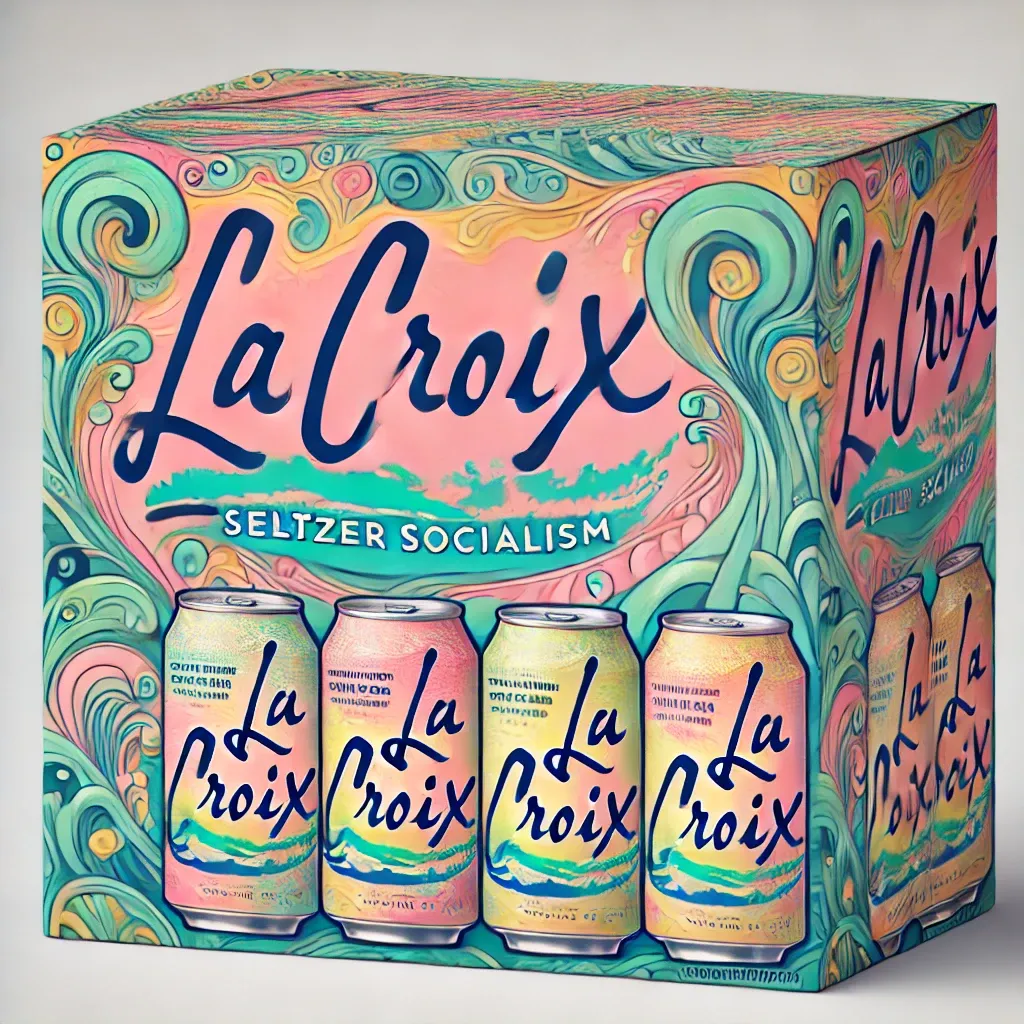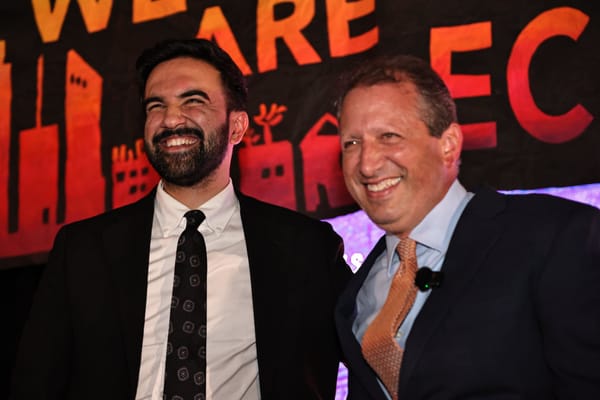Seltzer Socialism
Pass me a can, or twelve, of that.

For at least a hundred years, leftists around the world have been ridiculed for wanting nice things — so for at least a hundred years, leftists have been been careful not to dwell too much on the (allegedly) frivolous. The most recognizable epithet is the UK’s champagne socialist, but there’s also chardonnay socialist in Australia and New Zealand; izquierda caviar in Spain and gauche caviar in France; in Dutch and German the salonsocialist and salonkommunist. Other places, like in Turkey or Denmark, have compound terms based on a wealthy area of a city. Wherever you are, the Right wing would have it, there’s a damning hypocrisy in promoting progressive politics while enjoying personal luxuries.
Judging by the state of politics in America and its peers, that stigma has been internalized and mixed with a self-imposed shame: that it’s inappropriate or out-of-touch to address these things while real crises abound. Together, the effect is that few politicians seem to want to talk about why people deserve the amenities for a life above mere subsistence. Particularly in the US, there’s silence about the importance – the seriousness – of recreation, leisure, and fun.
I think there’s a clear opportunity to define these issues as more than bare survival, as things people deserve for a fulfilling life. We don’t have to consider them a luxury like champagne nor pretend they are as vital as water, but we could advance them in a politics of what I’ll call “seltzer socialism.”
Seltzer socialism would be an organizing concept for advancing a public politics that is explicitly about public enjoyment. There’s a wide open political space for socialists to advance a comprehensive agenda for a good life that everyone deserves – one full of art, recreation, food, sport, and gathering. Seltzer socialism would draw from global precedents as well as, appropriately, provide plenty of room for creativity.
Seltzer socialism would look like pushing governments to fund artistic production, consumption, and infrastructure – like how Australia or Sweden fund musicians to record and play their music and how Germany is giving 200 euros to all 18 year-olds to spend on cultural activities. It would mean pushing for bold public overhauls to make cities built for people instead of profits. That would include talking about turning into a cycling city like Sevilla, transforming towards a garden city like Singapore, and reducing traffic and expanding pedestrian zones like Paris. (Changing laws to allow for people to openly consume various mood enhancing substances in those public spaces wouldn’t be a bad idea, either).
It would look like talking about what everyone thinks about every day – food – and how to create new access to good and diverse eating options and food cultures for everyone. Chicago Mayor Brandon Johnson has been advancing a plan for municipally-owned grocery stores, an idea that New York City mayoral candidate Zohran Mamdani has recently pushed forward here. Just as cities like Berlin and Boston have bought apartment buildings in order to preserve or create affordable housing, city governments could do the same in order to preserve and protect neighborhood gems, so that historic restaurants, bars, and shops aren’t swept away every real estate cycle. American Express and the National Trust for Historic Preservation already have a private grantmaking program aimed at similar ends – but whose scale, and priorities, would be far inferior to a public version of the program. On the street, seltzer socialists would champion street food vendors, rather than criminalize them
It would look like proposing visionary parks and recreation spaces, and making current debacles like closed libraries and lifeguard shortages an absolute priority. Libraries would be struggling with overflow capacity at events, not with staffing to stay open. For many people, the sport they play or the game of a family member is the highlight of their week - seltzer socialists would treat availability, space, and amenities for those experience with the same respect. They would seek to protect the pick-up games and leagues that have been core social institutions in working class and immigrant neighborhoods, instead of selling off park permits to private companies and concessions to the highest bidder. If such an issue sounds esoteric, it’s only because those with a microphone haven’t talked about it – not because it doesn’t matter to residents.
All of this could be complemented by the insistence, like in a push by Bernie Sanders, that we should work less.
If that kind of politics sounds like a nice idea, we shouldn’t let anxieties about being taken seriously prevent us from getting those nice things. Instead, there’s plenty of reasons to believe that seltzer socialism is a strategic, winning agenda (though I don’t think anyone needs to ever say “seltzer socialism” into a microphone).
We don’t know exactly how winning these issues are because no one polls them. But if voters had to rank “good public restrooms” against “debt limit” or “critical race theory,” I don’t think the winner would be a surprise. “Voters” are actually full human beings living most of their lives concerned with their daily experience, not questions of geopolitics. It’s widely accepted that how mayors handle quality of life crises like snowstorms or garbage buildups are the most important issues of their mayoralty — but the same lesson hasn’t been applied to the things that affect quality of life every other day of the year. These aren’t niche concerns. With the exception of the ultra-elite ensconced in their own universe, everyone stands to benefit from a more enjoyable public life. People in poverty still enjoy a public pool even if they’re short on rent — in fact, the provision of that public good against the fact of exploitation and neglect in other aspects of society might be all the more important to them. There’s plenty of reason to believe these tangible things could really matter to people in ways that most political debates don’t. Moreover, these kinds of changes are hyper-efficient policy — the kinds of changes that are disproportionately and quickly felt in daily life.
None of this means that socialists ought to neglect continued fights for health care, housing, and good jobs. Rather, speaking more vocally about the stuff of seltzer socialism would help make those fundamental needs the baseline, not the reach goal. This NYC mayoral election in feels like the perfect setting to bring seltzer socialism into a major campaign setting: New York is a city with big problems and immense resources, one that’s just seen an obsessively corrupt Adams administration hack away at public wellbeing of all kinds. More broadly, within the Democratic party, it’s also strategic for the Left to take up this kind of coherent agenda given the inability of the mainstream of the Democratic Party to even clarify its position on core policies. On a national stage, this kind of agenda would be a striking contrast against the Right wing’s never ending quest to destroy the public sphere. Most existentially, on our global course towards scarcity and survivalism, centering our ability to enjoy what we can might become the most reliable kind of politics available.



